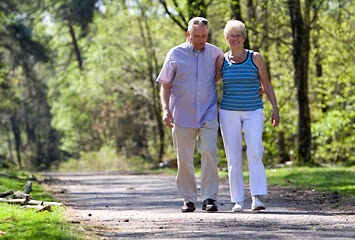"Making random guesses does not appear to benefit later memory for the right answer , but near-miss guesses act as stepping stones for retrieval of the correct information - and this benefit is seen in younger and older adults," says lead investigator Andrée-Ann Cyr, a graduate student with Baycrest's Rotman Research Institute and the Department of Psychology at the University of Toronto.
Cyr's latest research provides evidence that trial-and-error learning can benefit memory in both young and old when errors are meaningfully related to the right answer.
The researchers wanted to know if participants would be better at remembering rose if they had made wrong guesses prior to studying it rather than seeing it right away. They found that this was only true if participants learned based on the categories (e.g., a flower). Cyr and her colleagues suggest this is because our memory organizes information based on how it is conceptually rather than lexically related to other information. For example, when you think of the word pear, your mind is more likely to jump to another fruit, such as apple, than to a word that looks similar, such as peer. Wrong guesses only add value when they have something meaningful in common with right answers.
By guessing first as opposed to just reading the answer, one is thinking harder about the information and making useful connections that can help memory. Indeed, younger and older participants were more likely to remember the answer if they also remembered their wrong guesses, suggesting that these acted as stepping stones. By contrast, when guesses only have letters in common with answers, they clutter memory because one cannot link them meaningfully. The word rope is nowhere close to rose in our memory. In these situations, where your guesses are likely to be out in left field, it is best to bypass mistakes altogether.
"The fact that this pattern was found for older adults as well shows that aging does not influence how we learn from mistakes," says Cyr.
"These results have profound clinical and practical implications. They turn traditional views of best practices in memory rehabilitation for healthy seniors on their head by demonstrating that making the right kind of errors can be beneficial. They also provide great hope for lifelong learning and guidance for how seniors should study," says Dr. Nicole Anderson, senior scientist with Baycrest's Rotman Research Institute and senior author on the study.
Another study published shows the importance of physical activity on learning. There is myriad research that proves that students need adequate amounts of physical activity throughout the school day—not only do they prevent obesity and obesity-related issues, but they perform better academically also.
The CDC states, “…physical activity can have an impact on cognitive skills and attitudes and academic behavior, all of which are important components of improved academic performance. These include enhanced concentration and attention as well as improved classroom behavior.”
And there’s more. Active Living Research says, “In some cases, more time in physical education leads to improved grades and standardized test scores.” In schools that are under government mandates to bridge the achievement gap (and when those mandates encourage “teaching to the test”), physical education can actually help improve the students’ scores.
Exercise directly impacts the behavior and development of the brain for both young and old. “It is likely that the effects of physical activity on cognition would be particularly important in the highly plastic developing brains of youth and the aging brains of adults,” according to a 2010 essay penned by Charles Basch of Columbia University.
He summarized how exercise may affect executive functioning:
- Increased oxygen flow to the brain
- Increased brain neurotransmitters
- “[Increased] brain-derived neurotrophins that support neuronal differentiation and survival in the developing brain.” Neurotrophins assure the survival of neurons in areas responsible for learning, memory, and higher thinking.
So what do these studies mean for you? Both young and old can benefit from memory activities that help us learn to guess based on information rather than just seeing the answer and trying to remember it. For young students this may mean a new approach in teaching and test taking and for the older population it will help in rehabilitation after stroke or other causes of memory loss. It also means that physical activity is a necessary component to learning and memory retention for the young and old and it keeps us fit through out our lives. When we stay physically and mentally active we are better able to enjoy our life experiences. So make mistakes and get moving!!





No comments:
Post a Comment